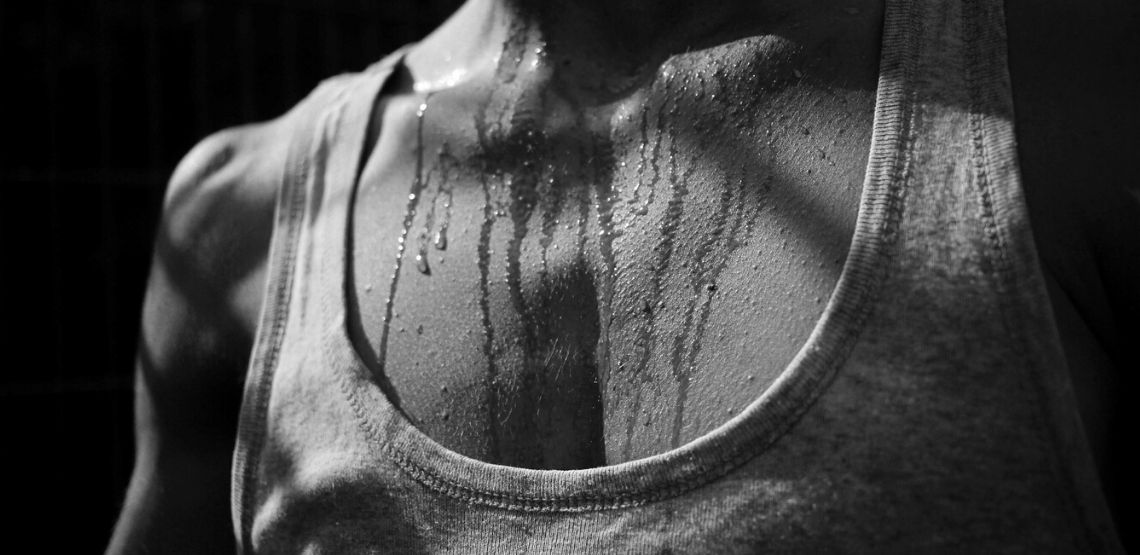How to Stop Sweating
Sweating can be a useful way that your body cools itself off. However, it can also be a bit of a burden at times, and in severe cases, a full-on hassle to deal with. So, what can you do if you’re sweating too much? Well, first we’re going to have to take a look at what excessive sweating is.
What Is Excessive Sweating?
According to Mayo Clinic, "Excessive sweating is when you sweat more than you might expect based on the surrounding temperature or your activity level or stress." Unfortunately, excessive sweating has the potential to embarrass people or provide them with social anxiety.
Excessive sweating is also known as hyperhidrosis. Those with hyperhidrosis may seem to be sweating for no apparent reason, however, hyperhidrosis can exist as its own condition and/or as the symptom of another independent medical condition.
Although hyperhidrosis can affect a wide variety of areas on your body, it is especially likely to affect the palms of your hands, soles of your feet, armpits and face.
What Causes Excessive Sweating?
There are two types of hyperhydrosis: primary and secondary.
A person is considered to have primary hyperhidrosis when there is no underlying cause for their sweating. Primary hyperhidrosis is believed to be partly linked to genetics. This type of hyperhidrosis mainly affects the hands, armpits, face and feet.
On the other hand, some types of hyperhidrosis can be caused by other medical factors or illnesses; this type of hyperhidrosis is called secondary hyperhidrosis. Secondary hyperhidrosis can occur all over the body, or in a larger area of the body than primary hyperhidrosis. Sweating can be caused by heat, certain medical conditions and even some medications.
According to Mayo Clinic, some of the medical conditions that can cause excessive sweating include:
- Diabetic hypoglycemia
- Endocarditis — which is an infection of the inner lining of the heart
- Fever of undetermined cause
- Generalized anxiety disorder
- Heart attack
- Heat exhaustion
- HIV/AIDS
- Hyperthyroidism (overactive thyroid)
- Leukemia
- Malaria
- Medication side effects (for example, excessive sweating is sometimes experienced when taking certain beta blockers and antidepressants)
- Menopause
- Non-Hodgkin's lymphoma
- Obesity
- Stress
- Tuberculosis
How to Prevent Excessive Sweating
Fortunately, there are solutions to the problem of how to stop sweating. Ranging from simple antiperspirants to more in-depth medical treatments, there are now more treatment options than ever for hyperhidrosis.
Antiperspirants are one of the most common types of treatment for those with hyperhidrosis. There are aluminum salts in the majority of antiperspirants; when these are rubbed on your skin it helps block perspiration. Antiperspirants can be used on more places than just your armpits. Some can be applied to other areas where you may sweat, such as your hands and feet, and in some cases even your hairlines. It’s recommended to apply antiperspirants at night before bed as well as in the morning.
There are both over-the-counter antiperspirants (such as those in deodorants) and those that require a prescription. Generally, it’s recommended to try the over-the-counter options first. If those don’t work for you, you can book an appointment with you doctor. They will be able to identify the type of hyperhidrosis you are dealing with, as well as the best potential treatment plan for you and your needs.
If antiperspirants aren’t enough, there are other methods of treatment that your doctor may be able to suggest. One of these methods is iontophoresis: a person sits with their hands or feet in water as a low voltage electrical current runs through the water. While this treatment needs to be repeated a few times a week, after several attempts your sweating may cease.
Botox is another treatment option that is FDA approved for treating hyperhidrosis in the armpits.
Anticholinergic drugs may be considered if other forms of treatment have not worked. These drugs prevent the activation of the sweat glands.
Surgery tends to be the last treatment option to be considered for those with severe hyperhidrosis that has failed to be managed by other treatments. Sometimes, for those who experience severe sweating in their underarms, surgeons may remove the sweat glands. In other types of surgeries, such as an endoscopic thoracic sympathectomy, nerves that activate sweat glands may be severed. However, this type of surgery has a high likelihood of producing compensatory sweating as a side effect. This means that your body may compensate for not being able to sweat from your armpits by sweating from another area of your body.
Living with Excessive Sweating
Living with excessive sweating can be very difficult; it can be embarrassing and a hassle to deal with at times. Fortunately, there are plenty of treatment options available regarding how to stop sweating. For many, antiperspirants will be sufficient to deal with the excessive sweating. However, for those who require stronger forms of treatment, there are several options.


